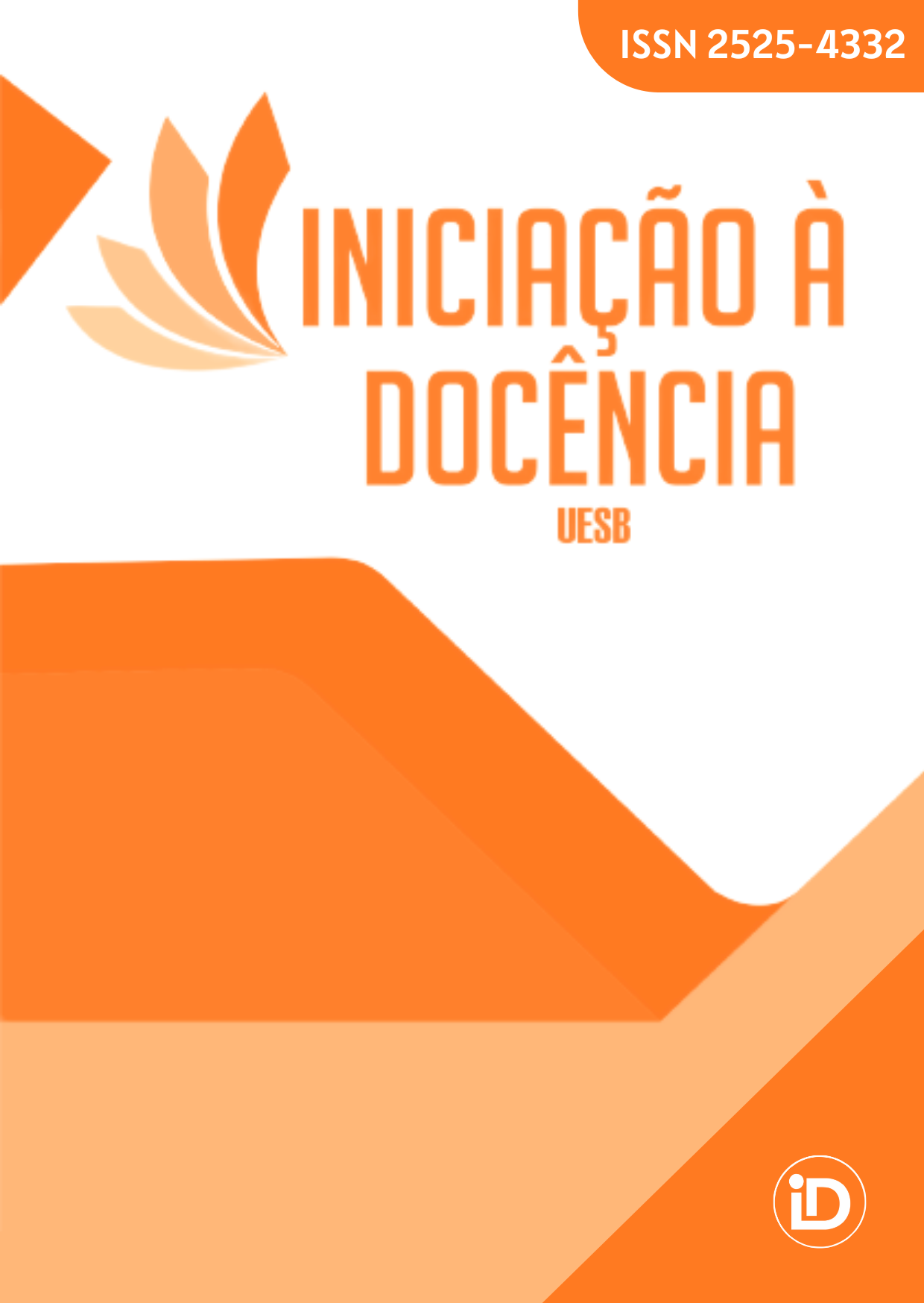Pibid and its contributions to english language teaching: application of ludic activities associated with the culture of peace, solidarity and social justice
DOI:
https://doi.org/10.22481/riduesb.v8i1.11728Keywords:
Teaching, Playfulness, English Language teaching, Experience report, SocietyAbstract
This article aims to evidence the relevance of Pibid, Institutional Scholarship Program for Teaching Initiation, in teacher training, as well as the role of education in building a more just and supportive society. This is an experience report about two workshops with playful activities developed by Pibid scholarship holders, in a public school in Viçosa, Minas Gerais. The theoretical contributions used to support the discussions related to the teaching of the English language, the role of the school in society and the importance of playful methodologies were Baladeli (2016), Barcelos (2011), Davis et al (2013), Dupret (2002), Estêvão (2016), Garcia (2018), Marzari (2020), Miccoli (2016), Rocha (2015), Santos (2019) and Tavares and Barreiro (2017). Through this report, reflections will be presented on the teacher's need to know how to construct their didactics to promote a critical education that go towards social justice. In addition, will be shared experiences that show that the use of playfulness in English classes can achieve a much more effective teaching, since this distances itself from traditional teaching, which is considered boring and discouraging by many students.
Downloads
References
BALADELI, A. P. D.; BORSTEL, C. N., FERREIRA, A. de J. Identidades docentes e diferença no discurso de professores de Língua Inglesa em formação inicial. Revista Portuguesa de Educação, n. 29, 2016. p. 207-227.
BARCELOS, A. M. F. 2011b. Lugares (im)possíveis de se aprender inglês no Brasil: crenças sobre aprendizagem de inglês em uma narrativa. In: LIMA, D. C. (Org.). Inglês em escolas públicas não funciona?: múltiplos olhares. São Paulo: Parábola. p. 147-158.
DAVIS, C.; SILVA, M. A. S. e; ESPOSITO, Y. L. Papel e valor das interações sociais em sala de aula. Cadernos de Pesquisa, São Paulo, n. 71, p. 49–54, 2013. Disponível em: https://publicacoes.fcc.org.br/cp/article/view/1168. Acesso em: 2 dez. 2022.
DUPRET, L. Cultura de paz e ações sócio-educativas: desafios para a escola contemporânea. São Paulo: Psicologia Escolar e Educacional, 2002. p. 91-96.
ESTÊVÃO, C. V. Justiça social e modelos de educação: para uma escola justa e de qualidade. Curitiba: Revista Diálogo Educacional, 2016. p. 37-37.
GARCIA, P.; GREGIS, R. O lúdico como recurso no ensino e na aprendizagem da língua inglesa: um estudo de caso com alunos do 6º ano do Ensino Fundamental. Linguagens & Cidadania, v. 20, 2018. p. 1-18.
MARZARI, G. Q.; GEHRES, W. B. S. Ensino de inglês na escola pública e suas possíveis dificuldades. Thaumazein, Santa Maria, v. 7, n. 14, p. 12-19, dez./2015. Disponível em: http://www.periodicos.unifra.br/index.php/thaumazein/index. Acesso em: 29 jun. 2020.
MICCOLI, L. Valorizar a disciplina de Inglês e seu trabalho de professor. In: CUNHA, Alex Garcia; MICCOLI, Laura (orgs.). Faça a diferença: ensinar Línguas Estrangeiras na Educação Básica. São Paulo: Parábola Editorial, 2016. p. 14-36.
ROCHA, F. R. D. A ludicidade como método de ensino na língua inglesa. Igapó, [S. l.], v. 9, n. 2, 2015. p. 15-26.
SANTOS, E. A educação como direito social e a escola como espaço protetivo de direitos: uma análise à luz da legislação educacional brasileira. Educação e Pesquisa [online]. 2019. Disponível em: https://doi.org/10.1590/S1678-4634201945184961. Acesso em: 2 dez. 2022.
TAVARES, A. S.; BARREIRO, A. M. O papel do educador na sociedade pós-moderna. Revista on line de Política e Gestão Educacional, Araraquara, p. 1228–1238, 2017. DOI: 10.22633/rpge.v21.n.esp2.2017.10162. Disponível em: https://periodicos.fclar.unesp.br/rpge/article/view/10162. Acesso em: 2 dez. 2022.
Downloads
Published
How to Cite
Issue
Section
License
Copyright (c) 2023 Revista de Iniciação à Docência

This work is licensed under a Creative Commons Attribution 4.0 International License.






